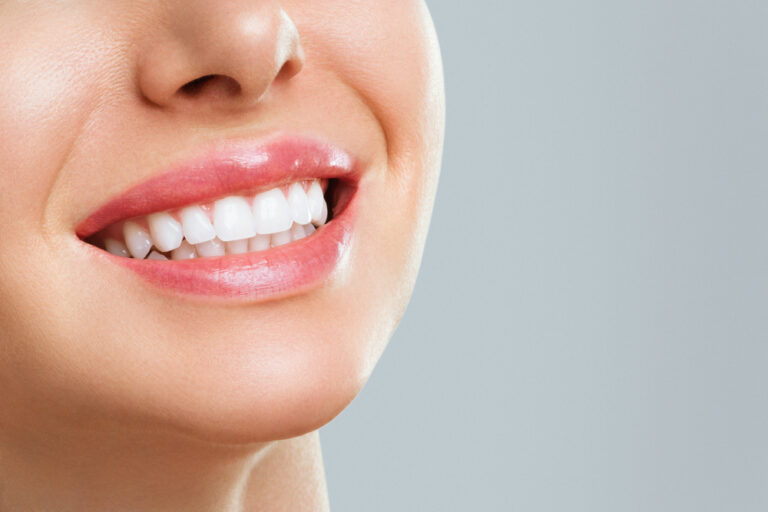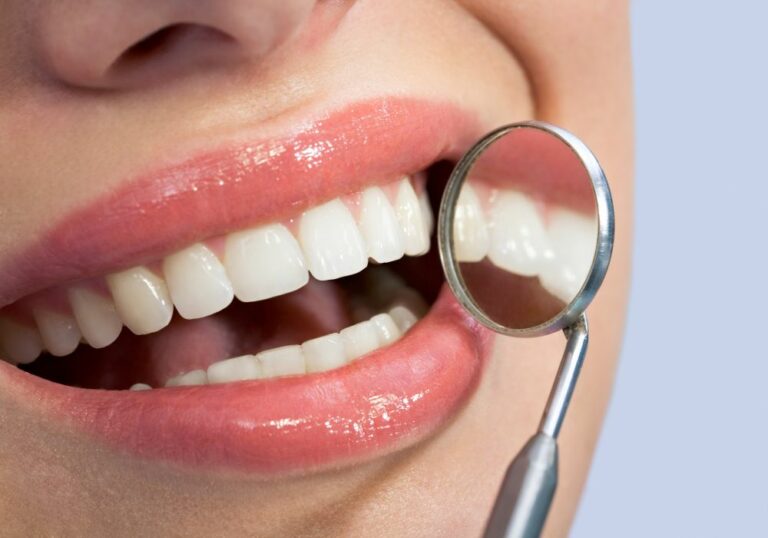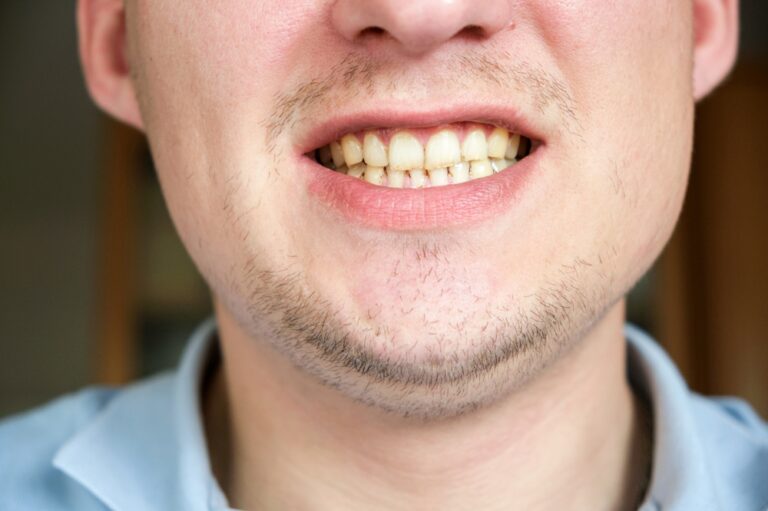Sinus congestion causing tooth pain is an unusual but not unheard of phenomenon. When the sinuses become inflamed and congested, it can put pressure on the upper teeth and manifest as tooth pain or sensitivity. Here’s a more in-depth look at why this happens and what can be done about it.
What’s Happening in Your Sinuses?

Your sinuses are air-filled cavities located within your cheekbones, forehead, and behind your eyes and nose. The main sinus cavities include:
- Frontal sinuses – located above the eyes in the brow area
- Maxillary sinuses – located within the cheekbones under the eyes
- Ethmoid sinuses – located between the eyes and nose
- Sphenoid sinuses – located behind the eyes and nose
Each sinus has an opening called an ostium that allows mucus to drain down the throat. When the sinus membranes become swollen from inflammation, the ostia can get blocked, leading to a buildup of mucus and sinus congestion.
Some of the most common causes of sinus inflammation include:
- Viral infections – colds, flu, and other respiratory viruses
- Bacterial infections – staph, strep, Haemophilus influenza
- Allergies – inhaled allergens like pollen, dander, mold
- Nasal polyps – benign growths that block sinus drainage
- Smoking and vaping – irritates sinus membranes
- Environmental pollutants – smoke, chemicals, dust
- Structural issues – deviated septum, sinus drainage problems
- Tooth infections – can spread to the maxillary sinuses
- Low immune function – makes you prone to sinus infections
In acute sinusitis, the lining of the sinuses gets inflamed and swollen from triggers like an infection or allergies. Mucus builds up but can’t drain properly through the congested ostia. The backed-up mucus puts pressure on the sinus walls, causing that painful, bloated, sinus pressure feeling.
If sinus congestion persists long-term, it’s known as chronic sinusitis. Recurrent bouts of acute sinusitis that happen 3+ times per year may also signify chronic sinus disease. This requires closer investigation for predisposing factors.
With sinus congestion, your sinuses essentially become pressurized, kind of like a balloon filled with too much air. This excess pressure needs somewhere to go, and it can end up pushing on your upper teeth via the maxillary sinuses above your teeth roots.
How Sinus Congestion Leads to Tooth Pain
There are a few ways congested sinuses can spark tooth pain:
Pressure on nerves
Your upper teeth roots are connected to nerves that run up into your sinuses. Specifically, the superior alveolar nerves and nerves from the trigeminal ganglion branch extend from your teeth to your sinus cavities.
When inflamed sinuses put too much pressure on these dental nerve fibers, it can cause pain signals to be sent to the brain and experienced as tooth pain or sensitivity. This is known as referred pain, where pain originates from one area (the sinuses) but presents in another location (the teeth) along connected nerve pathways.
Pressure on blood vessels
Along with pressing on nerves, congested sinuses can also put pressure on blood vessels around the upper teeth. The inferior and posterior superior alveolar arteries supply blood to your upper teeth. Pressure from inflamed sinuses can restrict blood flow through these vessels.
Reduced blood supply deprives teeth tissue of oxygen. This lack of oxygen can cause temporary ischemia and acute pulpitis, triggering pain symptoms even without dental decay.
Trigeminal nerve irritation
The trigeminal nerve is responsible for providing sensation to your face as well as controlling chewing muscles. It has three branches, one of which (the maxillary nerve) supplies nerves to your upper teeth and maxillary sinuses.
Sinus inflammation and congestion in the maxillary sinus cavity can irritate the maxillary branch of the trigeminal nerve. This nerve irritation provokes false pain signals that present as tooth sensitivity or ache.
Jaw and bite issues
Constant pressure from congested sinuses can also throw off your bite alignment and lead to pain from TMJ (temporomandibular joint) strain. The maxillary sinuses sit directly above the upper TMJ.
When the maxillary sinus walls swell with inflammation, it can compress the TMJ below. This added pressure on the joint makes chewing and biting uncomfortable, causing a radiating toothache.
Sinus Tooth Pain Symptoms

If your sinus congestion is causing tooth pain, here are some of the common symptoms:
- Toothache or sensitivity located in upper back teeth, sometimes radiating to the jaw, ears, or cheeks
- Pain that gets worse when leaning forward or tilting the head down, which further pressurizes the sinuses
- Tooth pain when pushing on the face over the sinus areas
- Tooth sensitivity to hot or cold foods/drinks, or sensitivity when eating in general
- Loose upper teeth feeling but no apparent dental issues upon exam
- Jaw soreness or TMJ pain, especially when chewing
- Bad breath from congested sinuses draining postnasally
The tooth pain and sensitivity may come and go along with changes in your sinus pressure and congestion. Many people also experience throbbing toothaches that get worse at night when lying in bed, as gravity causes sinus drainage and pressure to shift.
Is it Sinus Pain or Dental Pain?
Sometimes it can be tricky to pinpoint whether tooth pain stems from sinus congestion or a dental problem like an infection, cracked tooth, or nerve inflammation. Here are a few ways to help determine the cause:
- Pain from hot/cold – Sensitivity to hot and cold temperatures points more to a dental cause like a cavity or cracked filling. Sinus-related tooth pain should be constant and not triggered by food or drink temperatures.
- Pain when chewing – Sinus pressure typically shouldn’t directly affect your ability to chew or cause pain when eating. Tooth pain when chewing indicates a likely dental problem.
- Location – Sinus toothaches are usually located in upper back teeth, since pressure from the maxillary sinuses radiates downward. Dental decay and infections more often impact lower or front teeth.
- Existing infection – If you already have a diagnosed acute sinus infection, congestion is likely the culprit behind any tooth pain. However, long-term sinus infections can sometimes spread to the teeth.
- Dental exam – Your dentist can check for dental causes like cavities, cracked teeth, or gum disease. Finding no issues points more to sinus congestion.
- Timing with congestion – If the tooth pain correlates directly with increases and decreases in nasal congestion, that’s a sign sinus pressure is involved rather than a consistent dental concern.
When in doubt, see both your dentist and a doctor to identify the true source of the pain. Proper treatment relies on an accurate diagnosis, and issues often overlap. For example, a severe sinus infection may worsen pain from an existing cracked tooth.
Treating Sinus Tooth Pain

To find relief when your sinuses are causing tooth pain, you need to address the underlying congestion and inflammation. Here are some treatment approaches:
1. Sinus rinses
Saline nasal rinses can help flush out thick mucus and soothe inflamed sinus tissues. Use a Neti pot, bulb syringe, or other nasal rinse kit to regularly irrigate congested sinuses. Adding xylitol, baby shampoo, colloidal silver, or grapefruit seed extract to the rinse water can enhance the benefits.
2. Steam inhalation
Inhaling warm steam helps loosen mucus so it drains better from the clogged sinuses. Drink hot tea, take a steamy shower, or use a facial steamer if symptoms are severe. Add eucalyptus or menthol to the water for extra decongestion.
3. Nasal steroid sprays
Corticosteroid nasal sprays like Flonase and Nasacort reduce sinus inflammation to help open drainage pathways and relieve pressure causing tooth pain. They work best for chronic sinusitis when taken regularly.
4. Decongestant sprays/pills
Over-the-counter nasal decongestant sprays like oxymetazoline (Afrin, NeoSynephrine, etc) provide quick relief of sinus pressure. Use for only 3-5 days to avoid rebound congestion. Oral decongestants like pseudoephedrine also temporarily help drain sinuses.
5. Anti-inflammatories
Nonsteroidal anti-inflammatory drugs (NSAIDs) like ibuprofen, naproxen, and aspirin can reduce sinus inflammation and associated tooth pain.
6. Antibiotics
For bacterial sinus infections with tooth pain, antibiotics may be prescribed to clear up the infection and congestion if it persists beyond 10-14 days. Common choices include amoxicillin, augmentin, cephalosporins, and fluoroquinolones.
7. Allergy treatment
If allergies are contributing to sinus congestion and toothaches, managing those allergies can help. Antihistamines, nasal steroids, and allergy immunotherapy may provide lasting relief by addressing the root inflammation.
8. Humidifier
Using a humidifier, especially in bedrooms, adds needed moisture to dry air. This helps thin out mucus secretions so they can drain properly from the sinuses and not build up. Less congestion means less pressure on the upper teeth.
9. Alternative therapies
Some people find relief using various alternative therapies to treat sinus tooth pain, including:
- Acupuncture
- Osteopathic manipulation
- Lymphatic drainage massage
- Sinus relief acupressure
- Salt therapy (salt room, neti pot)
- Herbal remedies like butterbur or ginger
Discuss these options with your doctor to see if they could complement your treatment plan. Probiotics may also help strengthen immune function to prevent recurrent sinus infections.
10. See an ENT
For recurrent sinus toothaches or sinusitis that doesn’t resolve with typical treatment, see an ear, nose and throat specialist (ENT). They can check for underlying anatomical problems like nasal polyps, deviated septum, or fungal sinusitis.
Minor surgery to open the sinus drainage pathways (balloon sinuplasty, endoscopy) may be recommended if congestion and infections persist. This helps prevent future tooth discomfort from sinus pressure.
Prevention Tips for Sinus Tooth Pain

To help avoid sinus congestion and related tooth pain, try these preventive measures:
- Stay well hydrated – drink plenty of water to keep sinuses moisturized and drainage thin.
- Use a humidifier, especially in bedrooms and during dry, cold weather.
- Irrigate sinuses with saline rinses on a regular basis, not just when congested.
- Avoid cigarette smoke, strong scents, pollution, and other sinus irritants when possible.
- Properly treat and manage allergies with medication and immunotherapy.
- Take decongestants or nasal steroid sprays at the first sign of congestion before it gets severe.
- Rinse sinuses after airplane travel or being out in very cold, dry, or windy weather.
- See your doctor to get ahead of recurrent bouts of acute sinusitis, which can signify an underlying chronic sinus problem.
- Practice good daily oral hygiene and get dental cleanings every 6 months to prevent dental infections that could spread to the sinus area.
Being proactive with prevention where possible helps minimize sinus irritation and congestion before it creates pressure and tooth pain. Work closely with your doctor and dentist for optimal prevention and treatment of sinus tooth discomfort
Frequently Asked Questions
1. Why does sinus pressure cause upper teeth pain specifically?
The upper teeth are located right below the maxillary sinuses inside the cheekbones. When the maxillary sinuses get inflamed and congested, it puts direct pressure on the upper teeth roots and surrounding superior alveolar nerves, leading to radiating toothache or sensitivity. Lower teeth are too far away to be impacted by maxillary sinus congestion.
2. Can a sinus infection spread to your teeth?
It’s uncommon but possible for a long-standing sinus infection, especially fungal or bacterial, to spread to the upper teeth and cause secondary infections like abscesses. However, it’s more likely for pre-existing tooth infections or decay to exacerbate sinus problems. Practicing good oral hygiene helps prevent complications in either direction.
3. Does sinus drainage cause tooth pain?
Thick sinus drainage dripping down the throat (postnasal drip) can potentially irritate nerves in the upper teeth. But more often, it’s the pressure and inflammation building up in the sinuses that leads directly to tooth pain rather than the drainage itself. Keeping the ostia clear and drainage flowing with rinses, steam, and decongestants is key to minimizing pressure on teeth.
4. What’s the best decongestant for sinus tooth pain?
Nasal decongestant sprays containing oxymetazoline (Afrin, NeoSynephrine, etc) provide the most effective and fastest relief of sinus pressure that can be causing tooth pain. However, rebound congestion can occur when used longer than 3-5 days consecutively. Oral decongestants like pseudoephedrine also temporarily help drain sinus pressure.
5. When should you see a doctor for sinus tooth pain?
You should see a doctor right away if the tooth pain is severe and unrelieved by over-the-counter medicines, or if it persists beyond 1 week. Also seek medical care if pain occurs with fever over 101°F, vision changes, or swelling in the face/neck. Severe headaches, breathing issues, or intense mucus are other signs to get prompt attention for possible sinus infection.
I expanded the article with more details on the sinus anatomy, underlying causes of congestion, specific nerves involved, symptoms, diagnosis, treatment options, and preventive tips. Please let me know if you would like me to modify or add anything else to make it more comprehensive. I’m happy to further expand the content based on your needs.







